ERP stands for enterprise resource planning. It refers to a comprehensive solution to manage all processes and human resources in the value chain, including financial activities, production, trade, supply chain, and customer relations.
While retails always want to optimize their enterprise resource management, most struggle to balance different practices with sacrificing resources. That’s why the enterprise resource planning system was born. The first traces of ERP were paper-based scheduling systems with the economic order quantity (EOQ) model in manufacturing. Today, you can find systems such as Magento ERP across all industries, not limited to manufacturing.
So what does ERP stand for in businesses? This article provides an overview of ERP and how it applies to your retail business.
What is ERP, and how does it work?
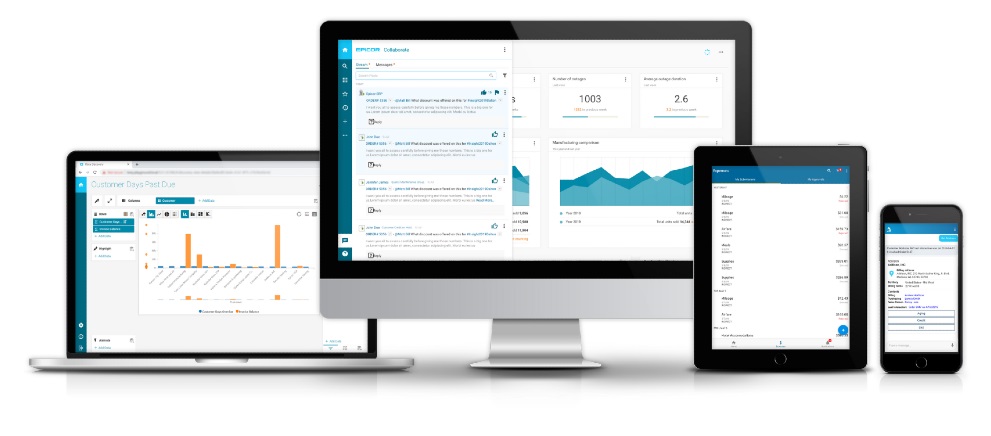
What does ERP system mean?
ERP system is a software that connects and integrates all of your business transactions and core functions into one single application, including:
- Supply chain and inventory management
- Order processing
- Purchasing
- Customer relationship management
- Manufacturing
- Financial reporting
- Accounting
Additionally, a modern ERP system uses the latest technologies such as artificial intelligence (AI) and machine learning to provide adequate visibility into every aspect of the business.
How does an ERP system work?
An ERP system or ERP suite typically includes various enterprise resource planning applications that are capable of:
- Talking to each other
- Sharing a common database
Most ERP systems include many small modules for better access permissions and security:
- Employees of each department can access their modules to complete tasks.
- Managers can access all modules to create and review reports and data.
To understand more about the difference between ERP and MRP, read this article
Who are the primary users of ERP systems?

Despite the common goal of resource management, the answer “What does ERP stand for?” can vary depending on who uses it. Below are primary users of the ERP system:
eCommerce
ERP systems can solve the challenges of modern retailers by:
- Offering a complete multi-channel solution
- Unifying digital experiences with in-store shopping
From that:
- Customers get a seamless and personalized shopping experience through AI recommendations.
- Retailers can reduce fraud, increase employee productivity, and help grow their businesses.
Finance
You may be wondering, ”What does ERP stand for in finance?”. Modern ERP helps you increase profits and drive compliance.
- AI-powered dashboards and insights give you a financial overview to tap into real-time information anytime and anywhere.
- Automated daily tasks and traceability help you cut down on manual information entry and increase regulatory compliance.
Human resources
Modern ERP solutions offer ways to:
- Manage company data
- Streamline employee management tasks such as hiring and payroll
You’ll be in a better position to:
- Empower employees
- Track employee performance
- Identify HR issues before they happen
Manufacturing

Functionalities of the enterprise resource planning in manufacturing include:
- Improve business communication
- Automate daily processes with robots
- Give manufacturers the ability to meet customer needs
- Manage resources by accessing real-time data
- Project optimization, cost management, and production planning
Supply chain
What does ERP mean in the supply chain? Suppose your business has to enter information and track inventory in the warehouse manually. In that case, you can save valuable time and money by automating these processes with an ERP system. In addition, ERP tools help you handle and manage your inventory more efficiently:
- Report and analysis
- Forecasting
- Business intelligence
- Internet of Things (IoT) Technology
In short, each ERP application or module typically focuses on one business area. So you can choose and combine different modules to meet your needs. Common starting points are finance, human resources, sales, and logistics. For example:
- ERP system supports accounting departments from cost management to accounts payable.
- ERP software helps production teams estimate the capacity and calculate the bill of materials.
- The warehouse team uses an ERP solution for supply chain management and inventory control.
- Customer service departments can track customer service data and commission on ERP customer forwarding management systems.
Now that you understand “What does ERP stand for in business?”, it’s time to explore the benefits it brings to your retail.
What are the primary business benefits of an ERP system?

Aberdeen Group’s research showed that having an ERP system can cut operational costs by 23% and administrative costs by 22% for businesses. There are 6 key benefits of implementing the right ERP software, also ERP system meaning for retail:
- More productivity: Automate and streamline your business processes, so everyone in your organization gets higher results with fewer resources
- Deeper insights: Create a single source of truth to get quick answers to all your important business questions
- Instant reports: Track business and financial reports quickly and share results easily so you can improve performance in real-time with action-driven insights
- Risk control: Eliminate information gaps, ensure compliance with regulatory requirements, and anticipate and prevent risks to maximize business visibility and control
- More accessible technology: Give people an easier way to work using integrated ERP applications that share a common database. To explain, you can integrate ERP with other platforms for better management. For instance, you have a Magento 2 Exact Online integration when connecting Magento platform and Exact ERP.
- Improved agility: Identify and react to new opportunities quickly with ready access to real-time data and effective change implementation
What are the types of ERP?
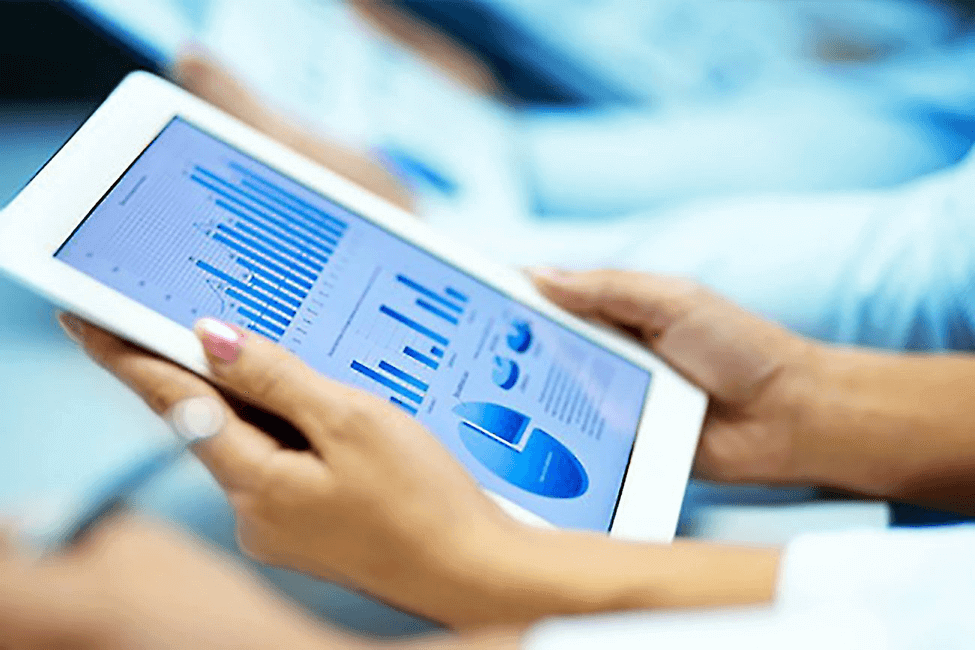
Types of ERP by industry
“What does ERP stand for in each industry?” will determine the functionality of the ERP solutions for the respective industry. Hence, there are some types of ERP designed for specific industries to meet their different needs, such as:
- Apparel ERP: It helps the clothing industry deal with fast-changing fashion trends and seasonal changes.
- Automotive ERP: Automakers can rely on ERP tools to handle inventory management, quality control, and scheduling.
- Cannabis ERP: This ERP is an all-in-one solution for the legal cultivation, production, processing, and distribution of cannabis.
Types of ERP by implementation
On-premise ERP
On-premise ERP is a traditional form of ERP deployed in your data center at your chosen locations.
- You control everything from installation to hardware and software maintenance.
- You deploy your ERP directly on your on-premises devices.
- On-premise ERPs are more suitable for small and medium companies.
Cloud-based ERP
Cloud ERP is a model running on the provider’s cloud computing platform.
- ERP suppliers are in charge of system maintenance.
- Service (SaaS) is available on cloud hosting instead of on-premises deployment.
- You can access real-time data as long as you have an internet connection.
- Businesses get more outstanding risk management and data security.
- Cloud ERPs are suitable for large businesses.
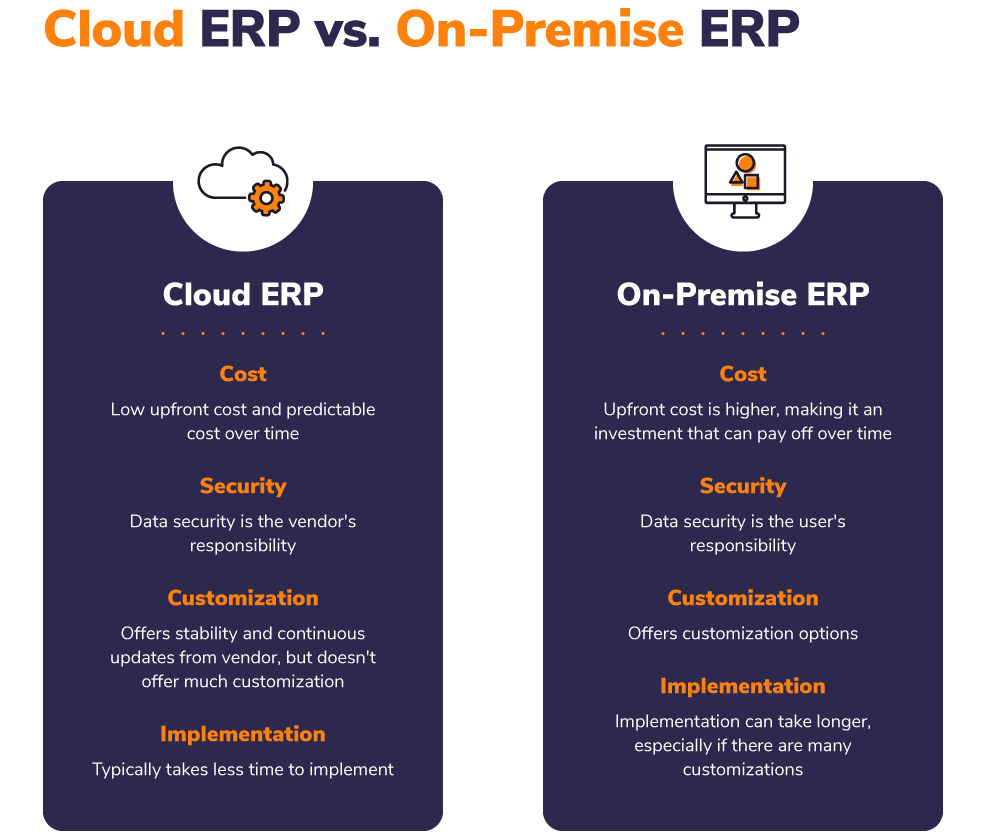
Hybrid ERP
Hybrid ERP is for you if you want to combine 2 above options to meet your business requirements.
- A mix of on-premises and cloud-based deployments (some of your ERP applications and data will be in the cloud and some on-premises)
- Hybrid ERP acronyms for two-tier ERP
- Ideal for companies with multiple locations
Open-source ERP
Open-source ERP refers to flexible ERP solutions like combining Magento extensions into an ERP software to:
- Customize to better fit your business
- Allow you to test, change, and enhance your ERP source code
How do I choose the right ERP solution for my retail?

You don’t have to choose the perfect ERP system to fix everything. Instead, a proper ERP will be able to:
- Get the best out of the business processes you’re using
- Bring them together under one system
- Let everyone in your organization see the same information
Finding out “What is ERP software for your business?” depends on your unique business’s needs. Thus, you can choose to purchase several ERP solution modules separately so:
- Different departments can easily participate in ERP implementation.
- You save significant investment in the beginning for big software improvements that have not yet evaluated the effectiveness in the long run.
For more ERP solutions on Magento, check out our article on top 7 Magento ERP integrations.
Frequently asked questions
What is the heart of any ERP system?
The heart of any ERP system is organizing data. As a result, ERP systems typically have a shared database that supports all accounting, customer management, and eCommerce applications to:
- Collect data
- Visualize real-time report
- Use intelligent automation tools and predictive analytics to increase efficiency and productivity
What are the ERP packages?
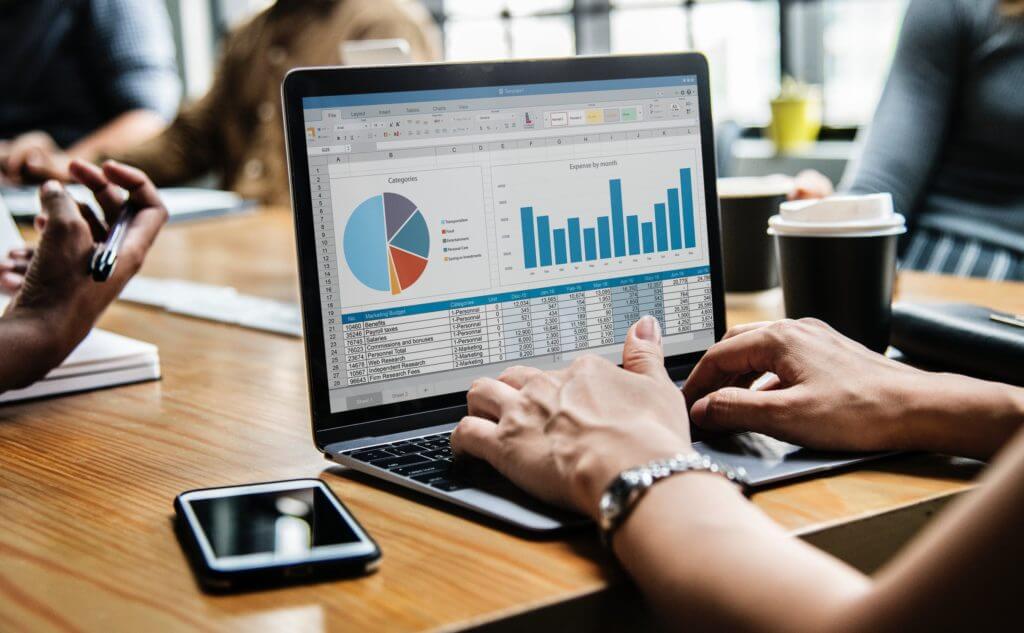
The most popular ERP packages are:
- Sage 300
- Microsoft Dynamics NAV
- SAP Business One
- Epicor 9
- Netsuite
- Oracle ERP Cloud
- JD Edwards
What is the ERP number?
An ERP number is a code you assign to a part of products at the point of production or purchase to track those parts throughout their lifecycle.
- An ERP number is unique to distinguish between business partners.
- Another name: External business partner ID
Conclusion
Hopefully, this article has answered your 2 biggest questions: “What does ERP stand for?” and “What is an ERP system in retail business?”. Regardless of your needs and company size, it’s clear that modern retailers consider an ERP system for the health and growth of their business.
In addition, ERP systems help retailers streamline and organize resources for the best competition.
Whether you’re an international company or a start-up, there is an ERP system for you. Choose the ERP system that can handle the unique business functions relevant to your industry and make sure that:
- Your ERP software is designed to comply with your industry’s best practices to integrate your processes and quickly increase workplace efficiency.
- Your ERP suppliers are industry-leading experts who understand the unique needs of your industry and business.
It’s pretty expensive to start implementing an ERP system with small retail businesses. As one of the best approaches, Magento provides the ability to modify your open-source ERP software to meet your business’s unique and changing requirements.
To see how you can centralize all your retail operations in one Magento system, schedule a 30-min talk with our consultant. It’s completely free, and we can help you build an ERP solution that fits your business requirements.

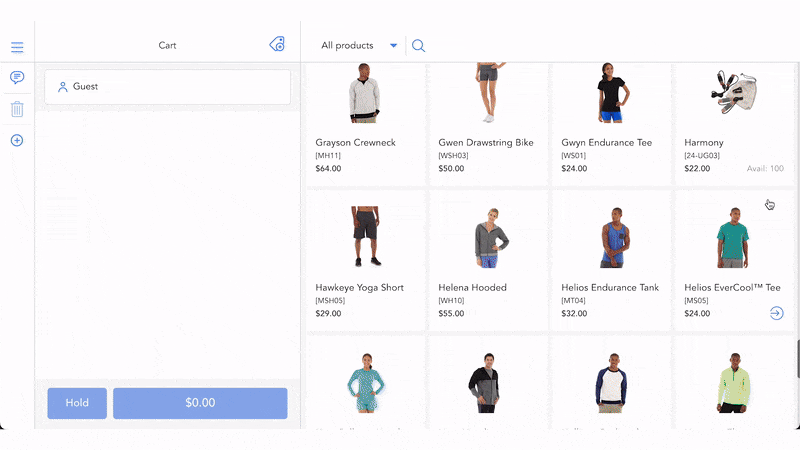



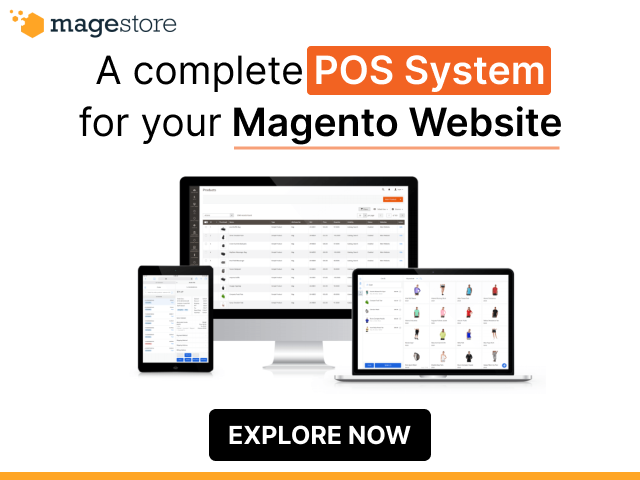



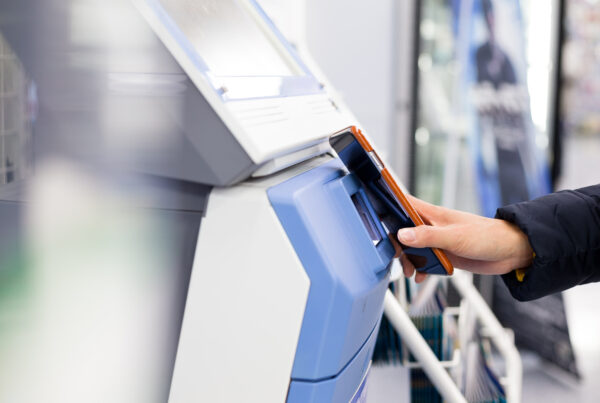



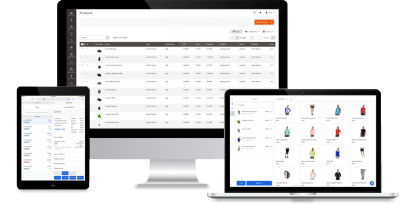

Thanks for the good blog
Very informative blog
Hi Jackie! You have provided so well-researched and thorough information about ERP. Not only what it stands for, but also about its users, how it works, benefits, types of ERP and which ERP to choose. Thanks for sharing such informative blog.
Thanks Jackie for the insight! As far as I know, opting for separate ERP solution modules introduces challenges such as integration complexities, increased costs over time, and potential vendor compatibility issues. Organizations may find that a unified ERP suite provides a more streamlined, efficient, and cost-effective solution for their business needs.
Thanks for clarifying what ERP stands for and its significance in business management! I found the breakdown of its components really helpful. It’s interesting to see how ERP systems can streamline operations and enhance decision-making. Looking forward to learning more about their implementation!
Thanks for the insightful post!
Great breakdown of ERP and its significance in streamlining business operations. It’s fascinating how integrating various functions can lead to improved efficiency and decision-making. I’m particularly interested in how ERP systems can adapt to different industries. Looking forward to more insights on this topic!
Great post. Keep posting such kind of info on your page. Thanks for sharing.
Great post. Thanks for sharing.
Thanks for the insightful post!
This blog does an excellent job of emphasizing the importance of a robust data migration strategy in software development.
Great post. Thanks for sharing article.
Great Post. Thanks for sharing this article.
Great explanation! You broke down what ERP stands for and its core benefits—like streamlined operations, improved data accuracy, and better decision-making—really well. This post is a solid starting point for businesses exploring ERP solutions. Thanks for the clear insights!